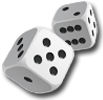



play board games
Board game reviews, strategy tips & session reports
Pantheon Board Game Review
 Stats:
Stats:
No. of players: 2-4
Amount of time to play: 60-90 min
Age requirements: 12+
Set-up time: 10-15 minutes
Pantheon Board Game Rules Description:
Pantheon is a medium-weight Euro-game in which you collect points by gaining favor from gods and minor gods. If you can gain more of their favor (and thus points) than your opponents you win.
Pantheon takes place over six epochs. You score points at the end of the third and sixth epochs and with some actions.
You start Pantheon with five cards, four feet tokens and three columns. The game takes place on a hex map with eight different civilizations on it. At the start of each epoch you must set up the map. You randomly choose the civilization, bonus tiles and gods and then play begins.
On your turn you may take one of the following actions: move, buy, draw cards or claim a god.
Taking the move action allows you to place your feet tokens and columns on the board using movement cards. If you walk over a bonus tile you remove the tile from the board and claim the bonus. Columns may only be placed on specific hexes and are used for scoring after the third and sixth epochs. Every other player also gets a chance to place feet and columns when you take this action.
When you take a buy action you discard gold cards to purchase or upgrade sacrifice tiles and place feet or columns. Using the buy action to place feet and columns does not allow others to place them like the move action.
Only two players’ feet or columns may be on a space. If your feet or columns are the second placed on a hex it costs you two movement points (called steps) or two gold (instead of one) if you are using the buy action.
You may also buy sacrifice tiles. Sacrifice tiles and cards are used to claim a god. Each god requires a different combination of offerings to claim. The tiles are better than the cards since they are not discarded, but they cost money. Once you claim a god you will instantly score points based on the epoch. You also gain an advantage based on the god you claim. Advantages range from instantly taking another god to getting an extra step or gaining extra gold when using a buy action.
The draw deck is situated with four face-up cards next to the face-down pile. With the draw action you may take three cards. If you take a face-up card you replace it with the top card of the draw deck before drawing another card. You can also draw blindly from the top of the deck.
An epoch ends when the three bonus tokens are removed from the map or all the gods have been claimed. You then remove the feet from the board and any leftover bonus tiles or tokens and set up a new civilization. The player that ends the round scores three victory points.
You get victory points in these ways. At the end of the third and sixth epochs you will score based on the number of columns you have on the board. You will also score your minor gods at this time. (Minor gods are claimed with bonus tiles and some come into play with other gods.) The god Pietalte also scores victory points at these times. You instantly score points when you claim a god or when you end an epoch.
The player with the most points after the sixth epoch wins the game.
A Quick Pantheon Board Game Review:
Pantheon is a classic Euro-game. It has quality components, familiar mechanics and different strategic options for winning. All this adds up to a fun game.
Pantheon is fairly random and some gamers will not like how much of the game may depend on tile and card draws. If you like randomness in your games then this may not bother you.
The rules also make the game seem much more complex than it actually is. In fact you should try a couple solo rounds with the rules on hand. This will help you explain Pantheon to others and understand the concepts for yourself.
To win Pantheon you have to maximize the scoring rounds and claim gods that complement your strategy and fight for column spaces that will help you and hinder other players. Players that have played more will have an advantage over the newer players. The repeated plays will help the experienced player plan and know which gods and bonus tiles will help them the most.
Though not particularly innovative, Pantheon combines a number of tried and true mechanics to produce a fun game with meaningful decisions and strategy.
If you like Euro-games and don’t mind some randomness in your games then check out Pantheon.
Score and synopsis: (Click here for an explanation of these review categories.)
Strategy 4 out of 6
Luck 5 out of 6
Player Interaction 5 out of 6
Replay Value 4 out of 6
Complexity 4 out of 6
Fun 4 out of 6
Overall 4 out of 6

Leave a Reply